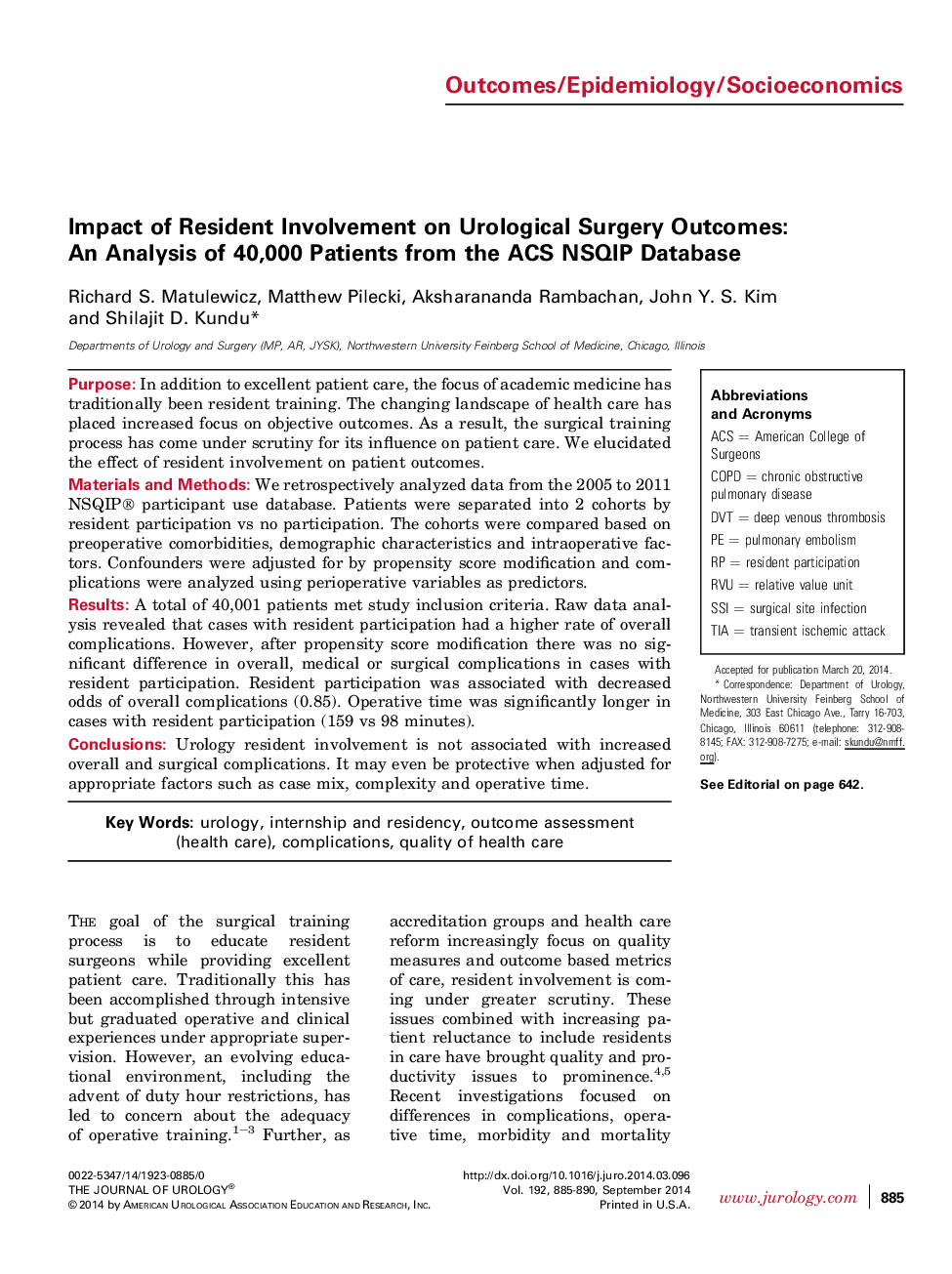| کد مقاله | کد نشریه | سال انتشار | مقاله انگلیسی | نسخه تمام متن |
|---|---|---|---|---|
| 3860423 | 1598900 | 2014 | 6 صفحه PDF | دانلود رایگان |

PurposeIn addition to excellent patient care, the focus of academic medicine has traditionally been resident training. The changing landscape of health care has placed increased focus on objective outcomes. As a result, the surgical training process has come under scrutiny for its influence on patient care. We elucidated the effect of resident involvement on patient outcomes.Materials and MethodsWe retrospectively analyzed data from the 2005 to 2011 NSQIP® participant use database. Patients were separated into 2 cohorts by resident participation vs no participation. The cohorts were compared based on preoperative comorbidities, demographic characteristics and intraoperative factors. Confounders were adjusted for by propensity score modification and complications were analyzed using perioperative variables as predictors.ResultsA total of 40,001 patients met study inclusion criteria. Raw data analysis revealed that cases with resident participation had a higher rate of overall complications. However, after propensity score modification there was no significant difference in overall, medical or surgical complications in cases with resident participation. Resident participation was associated with decreased odds of overall complications (0.85). Operative time was significantly longer in cases with resident participation (159 vs 98 minutes).ConclusionsUrology resident involvement is not associated with increased overall and surgical complications. It may even be protective when adjusted for appropriate factors such as case mix, complexity and operative time.
Journal: The Journal of Urology - Volume 192, Issue 3, September 2014, Pages 885–890